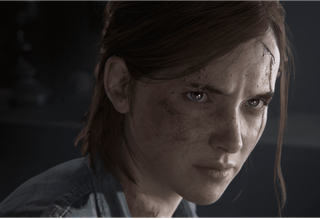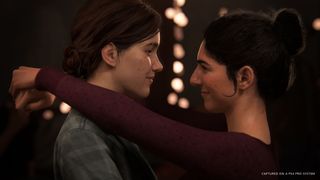Tell us about yourself - What's your role at TKG?
I'm Connor, the new PR Assistant at Third Kind Games, I work with Vicky on all things PR and manage all of our social media channels!
Who is your favourite LGBTQI+ video game character?
My favourite character HAS to be Ellie from The Last of Us Part I & II. Ellie stands out as not just a great LGBTQI+ character, but one of the best characters created across all media! She's resilient, complex and layered - but also entertaining and engaging to play as in the games.
What makes them so special?
There are a lot of video games and a lot of brilliant characters nowadays, but not many are as multi-dimensional and layered as Ellie.
When I played the first game, I immediately felt a connection with the character, as from the moment we meet her it is clear she has more going on than we know. Throughout the game's plot, she displays a great sense of humour and vulnerability that makes her feel relatable and authentic - and it's clear the writers crafted her with so much love and attention.
Coupled with the excellent motion capture, voice acting and animations, it makes her feel real, and through the protagonist players very quickly find themselves forming a bond with her.
Why are they a great LGBTQI+ character?
SPOILER WARNING If you’ve not played The Last of Us: Part II, I highly recommend it. If you have, read on!
In the sequel, the game explores her relationship with Dina, and even used their romance story in the game's story reveal e3 trailer. This caused discourse and anger from people online, but the developers stuck to their guns and championed their love. It was something very heartwarming and a proud moment for me, to see other developers being proud of their character and not giving in to anger online! Ellie's relationship with Dina showcases love and affection without becoming a caricature.
It reinforces the importance of LGBTQI+ love stories being treated with the same care and respect as any other romantic storyline, and despite it having a tragic ending (which can be a stereotype of queer love stories) I believe that ending feels earned and real.
Why do you think LGBTQI+ characters in games are important?
Well, it not only reflects the diverse world we live in but it also helps to offer more interesting and fresh characters and storylines for video games! It creates more unique perspectives for developers to explore and can create deeper connections between the players and the characters.
It can help impact real-world attitudes, I know from personal experience with family who have old-fashioned opinions, when they played The Last of Us, they felt emotionally connected with Ellie and understood her. Games have the potential to educate and positively influence people, by showing them the challenges faced by LGBTQI+ people - and can even inspire change.
They can also offer spaces for self-discovery. I have friends who personally played games that explored sexuality and it helped them realise theirs! It can help people learn about themselves, feel less isolated and even self-acceptance. Especially for people who may still be grappling with their identities.
And of course, it encourages diversity in game development! LGBTQI+ characters in games can encourage new diverse talent to enter the game development field, which brings new voices and experiences - which leads to more creative and innovative games.

